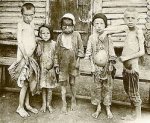JC Callender
DP Veteran
- Joined
- Jan 26, 2013
- Messages
- 6,477
- Reaction score
- 3,270
- Location
- Metro Detroit
- Gender
- Male
- Political Leaning
- Undisclosed
There were food riots in the Great Depression prior to the New Deal.
Progressive Historians: History For Our Future
This is what the article says near the beginning:
"There was no violence that day, so calling it a riot may not have been the best description.
However, it remains significant for one reason - it was the first, and last, food riot that the national media reported."
The media reported every strike but not a single food riot?
Do you have anything a little more reputable and convincing? Pictures would help too.


